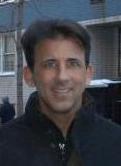The Guardian books blog proposes that we "commemorate the very worst writing of the decade," to counter all the Best of the Decade lists and give us a more balanced view of the first years of the millennium.
Well, the titles listed below aren't necessarily the worst. Certainly, I read slush-pile books, self-published titles, and little-known debuts that were deservedly neglected and are (for the most part) already out of print. And let's not even go into the swath I cut through the science-fiction booklists. Instead, these are the novels I read that either didn't live up to the hype or to the author's reputation.
The Biographer's Tale, A. S. Byatt. You know those index cards that scholars once used when doing research? If you ever wondered if they might add up to a good novel, Byatt tackles the question for you and offers up an answer. No.
The Body Artist, Don DeLillo. I had a hard time choosing between this one and Cosmopolis, but DeLillo's newfound disdain for the grammatical artifact known as the pronoun antecedent won out.
Elizabeth Costello, J. M. Coetzee. B-sides and outtakes from the New York Review of Books do not a novel make.
The Fourth Hand, John Irving. I've occasionally felt that John Irving is unjustifiably maligned by critics and ignored by the awards committees. Here was his attempt to write a subdued, more blatantly literary novel and validate their disapproval.
How to Be Good, Nick Hornby. How to be sanctimonious (and, even worse, not funny).
Life of Pi, Yann Martel. Kind of a neat story, in that Fountainhead or Stranger in a Strange Land kind of way. Then you ponder it a few days and resent the preachy manipulation.
The Time Traveler's Wife, Audrey Niffenegger. Too bad about those last 300 pages.
Water for Elephants, Sara Gruen. A debut by an author who ingested Geek Love and HBO's Carnivale and regurgitated them blanched, without the crispy edges.
Honorable mention: Vernon God Little, D. B. C. Pierre. A blend of the best of the adolescent-angst genre and Southern gothic fiction. And the worst.
skip to main |
skip to sidebar

Liberal Politics & Liberal Arts -- Fully Caffeinated & 100% Plagiarism-Free
About Me

- D. Cloyce Smith
- Brooklyn, NY
- Marketing director, graphic designer, political activist, avid reader, New York City resident for thirty years.
Currently Recommended Books
- Camille (Alexandre Dumas fils)
- The Lost Estate (Henri Alain Fournier)
- Ferris Beach (Jill McCorkle)
- Little Scarlet (Walter Mosley)
- Wonderland (Joyce Carol Oates)
- Music Through the Floor (Eric Puchner)
- The Epiphanist (William Rosencrans)
- Checker and the Derailleurs (Lionel Shriver)
- Ms. Hempel Chronicles (Sarah Shun-lien Bynum)
- Butcher's Crossing (John Williams)
Books I'm Reading
Background
- Three decades' experience in book production and marketing, mostly for nonprofit publishers
- M.A., Fordham University (Medieval History)
- B.A., University of Puget Sound